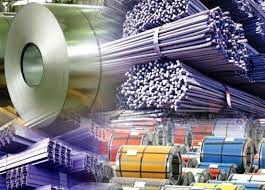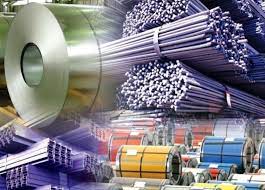
Steel producers are being forced to reduce production across Europe due to rising energy costs, which is endangering widespread plant closures that some experts fear may be permanent in a sector that employs over 300,000 people and generates tens of billions of euros for the local economy.
Even though the eastern Belgian site of stainless steel manufacturer Aperam has four wind turbines and more than 50,000 solar panels, production has been halted due to rising energy costs.
The company idled a facility that would typically be melting scrap stainless steel and turning it into enormous slabs, employing about 300 people. As a result, it is now paying for energy in a month what it used to in a year.
"We have temporary levers to overcome a certain period but this cannot last for years," Aperam's European chief Bernard Hallemans told Reuters from the quiet inside of the plant.
"If this (does), we will see a de-industrialisation of sectors like ours and Europe will also, for base metals like ours, become dependent on imports."
Normal summer maintenance would limit production to about 80% of capacity, but according to Hallemans, since late June, when Russia abruptly cut off gas supplies to Europe, prices—which were already skyrocketing—have dropped to about 50 per cent.
Imports into Europe have increased from 20-25% in 2020 and 2021 to 40% this year, peaking at around 50% in the recent weeks. These imports are primarily from Asia, where energy prices are much lower but the carbon footprint is higher.
Hallemans asserts that Europe must provide solutions. Steel generates about 83 billion euros ($80.97 billion) in direct value added to the region's economy each year, employing 330,000 people directly, according to a McKinsey report from last year.
The European Commission claims that 195,000 jobs in the steel industry were protected by EU trade defense measures in 2021, but detractors claim that the energy cost gap is now so wide that imports can still be less expensive even with higher protective tariffs.
In the energy sector, the European Union failed to reach a gas price cap agreement but supported a proposal to share excess profits from power producers with consumers.
Energy prices are at an all-time high just as Aperam seeks to lock customers into yearly contracts, according to Hallemans, who claims that the potential payout producers like Aperam would receive is unclear and could be months away.
The steel industry in Germany, which depends heavily on Russian gas to power its export-driven economy, is facing additional energy costs of 10 billion euros, or about 25 per cent of the industry's average annual turnover, in addition to additional costs for the EU's green transition.
"If we don't pull the trigger now, a winter of de-industrialisation threatens us in Germany," said German steel federation WV Stahl president Hans Juergen Kerkhoff.
Due to customers' reluctance and the threat of an impending recession and rising energy costs, ThyssenKrupp Steel Europe has reduced production there.
The second-largest steelmaker in the world, ArcelorMittal, has also shut down a blast furnace in Germany along with others in France, Poland, and Spain. It predicts that its fourth-quarter production in Europe will be about 17 per cent lower than a year ago.
Adolfo Aiello, deputy director of the European Steel Federation Eurofer, warns that if the energy crisis is not resolved soon, temporary stoppages may turn into permanent ones, affecting not only the steel industry but also other energy-intensive industries like chemicals, fertilizers, and other metals.
According to Eurofer, since its August prediction of a modest 1.7% decline in European steel consumption this year but a strong 5.6% rebound in 2023, the situation has significantly deteriorated.
The federation's upcoming quarterly outlook isn't due until late October, but director of economic studies Alessandro Sciamarelli predicts a decline that will start in 2022 and continue through 2023.
"Events of the last two months have completely upset the picture," he said.
The 1,200 workers at Aperam's Genk facility run the risk of being temporarily laid off, and take-home pay has been reduced by at least a fifth as inflation rises to 10 per cent.
The plant has previously experienced brief shutdowns, most notably in the 2008–2009 global financial crisis.
"Today nobody knows how the energy prices (will go)... how will our customers react, will we be able to pay the bills, and so on," said production manager Yves Dufrane ahead of a three-day stoppage at his downstream facility.
(Source:www.latestly.com)
Even though the eastern Belgian site of stainless steel manufacturer Aperam has four wind turbines and more than 50,000 solar panels, production has been halted due to rising energy costs.
The company idled a facility that would typically be melting scrap stainless steel and turning it into enormous slabs, employing about 300 people. As a result, it is now paying for energy in a month what it used to in a year.
"We have temporary levers to overcome a certain period but this cannot last for years," Aperam's European chief Bernard Hallemans told Reuters from the quiet inside of the plant.
"If this (does), we will see a de-industrialisation of sectors like ours and Europe will also, for base metals like ours, become dependent on imports."
Normal summer maintenance would limit production to about 80% of capacity, but according to Hallemans, since late June, when Russia abruptly cut off gas supplies to Europe, prices—which were already skyrocketing—have dropped to about 50 per cent.
Imports into Europe have increased from 20-25% in 2020 and 2021 to 40% this year, peaking at around 50% in the recent weeks. These imports are primarily from Asia, where energy prices are much lower but the carbon footprint is higher.
Hallemans asserts that Europe must provide solutions. Steel generates about 83 billion euros ($80.97 billion) in direct value added to the region's economy each year, employing 330,000 people directly, according to a McKinsey report from last year.
The European Commission claims that 195,000 jobs in the steel industry were protected by EU trade defense measures in 2021, but detractors claim that the energy cost gap is now so wide that imports can still be less expensive even with higher protective tariffs.
In the energy sector, the European Union failed to reach a gas price cap agreement but supported a proposal to share excess profits from power producers with consumers.
Energy prices are at an all-time high just as Aperam seeks to lock customers into yearly contracts, according to Hallemans, who claims that the potential payout producers like Aperam would receive is unclear and could be months away.
The steel industry in Germany, which depends heavily on Russian gas to power its export-driven economy, is facing additional energy costs of 10 billion euros, or about 25 per cent of the industry's average annual turnover, in addition to additional costs for the EU's green transition.
"If we don't pull the trigger now, a winter of de-industrialisation threatens us in Germany," said German steel federation WV Stahl president Hans Juergen Kerkhoff.
Due to customers' reluctance and the threat of an impending recession and rising energy costs, ThyssenKrupp Steel Europe has reduced production there.
The second-largest steelmaker in the world, ArcelorMittal, has also shut down a blast furnace in Germany along with others in France, Poland, and Spain. It predicts that its fourth-quarter production in Europe will be about 17 per cent lower than a year ago.
Adolfo Aiello, deputy director of the European Steel Federation Eurofer, warns that if the energy crisis is not resolved soon, temporary stoppages may turn into permanent ones, affecting not only the steel industry but also other energy-intensive industries like chemicals, fertilizers, and other metals.
According to Eurofer, since its August prediction of a modest 1.7% decline in European steel consumption this year but a strong 5.6% rebound in 2023, the situation has significantly deteriorated.
The federation's upcoming quarterly outlook isn't due until late October, but director of economic studies Alessandro Sciamarelli predicts a decline that will start in 2022 and continue through 2023.
"Events of the last two months have completely upset the picture," he said.
The 1,200 workers at Aperam's Genk facility run the risk of being temporarily laid off, and take-home pay has been reduced by at least a fifth as inflation rises to 10 per cent.
The plant has previously experienced brief shutdowns, most notably in the 2008–2009 global financial crisis.
"Today nobody knows how the energy prices (will go)... how will our customers react, will we be able to pay the bills, and so on," said production manager Yves Dufrane ahead of a three-day stoppage at his downstream facility.
(Source:www.latestly.com)





